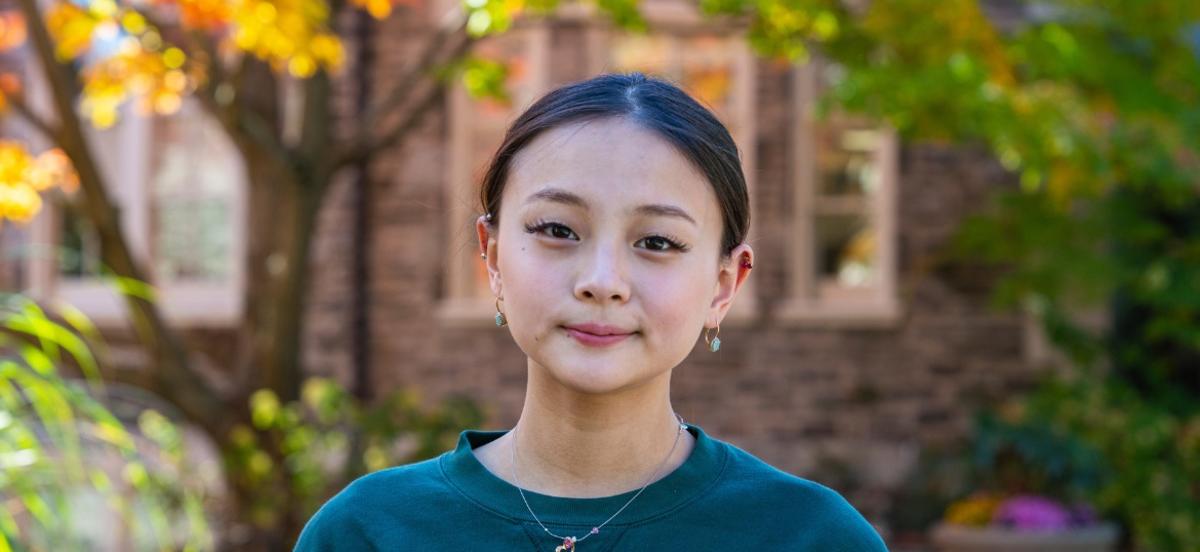Yuriko Zhang '25 Offered a Critical Language Scholarship

Details
The anthropology major applied for a Critical Language Scholarship, which provides students with the opportunity to study languages and cultures in an immersive environment.
When Yuriko Zhang ‘25 applied for a Critical Language Scholarship (CLS) in Japan, she found that the application process was a learning experience in and of itself.
“I learned a lot more about how my activism was connected to my academic interests,” says Zhang, a junior majoring in anthropology with a minor in Asian American studies, who is both a Mellon Mays Fellow and a Chesick scholar. “I used to always see them as very separate – [activism] was my out-of-school extracurricular, and in school I have to focus on school. But I realized there was a lot of overlap and ways that my interest in learning Japanese could also contribute to my perspectives in Asian American studies.”
Zhang’s application to CLS is only the most recent development in her extensive experience with activism and language-learning. In high school, she participated in the National Security for Language Immersion for Youth (NSLI-Y), the high school version of CLS. As part of the program, she attended Korean language classes and volunteered at a Korean American nonprofit in New York City’s Chinatown. She was able to use her knowledge of both Chinese and Korean to teach individuals about local resources such as mutual aid. In her application for CLS, Zhang says, “I used that [experience] to talk about my interest in language-learning and how I see language as a really important aspect in daily life.”
Zhang’s reason for choosing to apply to CLS’s Japan program was both personal and academic. Having lived in Japan for a short time when she was very young, Zhang has nostalgic ties to the language. “I wanted to do some soul searching in a way, or understand my own identity better by going back to Japan and immersing myself in the culture and the language there,” she says.
From an academic perspective, Zhang is interested in exploring Japanese American activism and its influence on Asian American activism more broadly. “I’m really invested in learning about how different diasporic experiences throughout the world have shaped Asian American identity,” she explains. She hopes that learning Japanese will help open up more opportunities and resources for future research, such as creating ethnographies and analyzing primary sources.
Though Zhang is not able to accept the fellowship this summer, she notes that she learned valuable lessons from the application process itself – including how her activism and her academic interests are linked. In writing her application, she realized that intersections between academia and activism was something she was very curious about, and hopes to continue researching in the future.
When asked what advice she would give to students applying to similar fellowships, Zhang was clear: “Definitely don’t procrastinate.”
Just as importantly, she encourages students to meet with Jason Chan, CCPA’s Director of Fellowships, as early on in the process as possible. She emphasizes that you don’t need to have started your application before setting up a meeting.
“I found it really helpful to meet with Jason just to brainstorm,” she says. “The CCPA was a really, really helpful resource that everyone should try to consult in these kinds of processes.”
Zhang looks forward to working on future projects that will explore the history of Asian American activism and its intersection with language, culture, and identity. Next semester, she will take a University of Pennsylvania course on the history of the internment of Japanese Americans, and hopes that her growing knowledge of Japanese will aid in her research.



